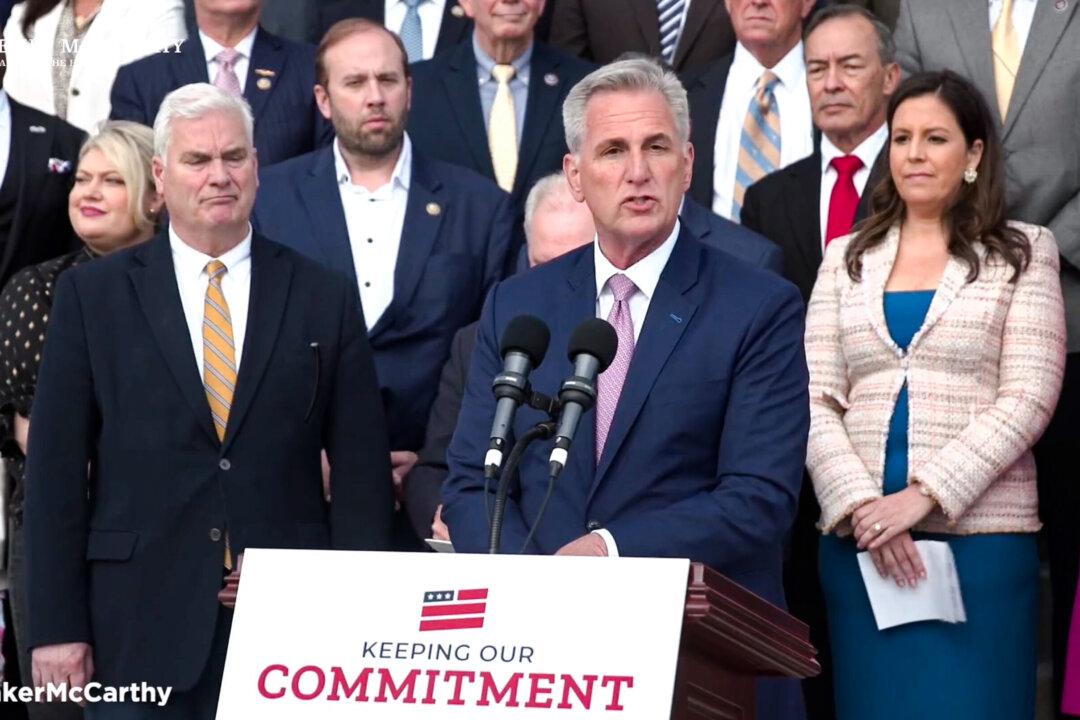House Republican leaders showcased their message discipline on April 17, and made their decision to reopen the U.S. Capitol a touchstone of their record during the first 100 days of the 118th Congress.
“In our first 100 days, House Republicans not only reopened the House, as our speaker talked about—the People’s House, by the way, not Pelosi’s House—we passed a rules package to create a more transparent, member-driven legislative process,” said House Majority Whip Tom Emmer (R-Minn.) in a press conference with many GOP colleagues.





